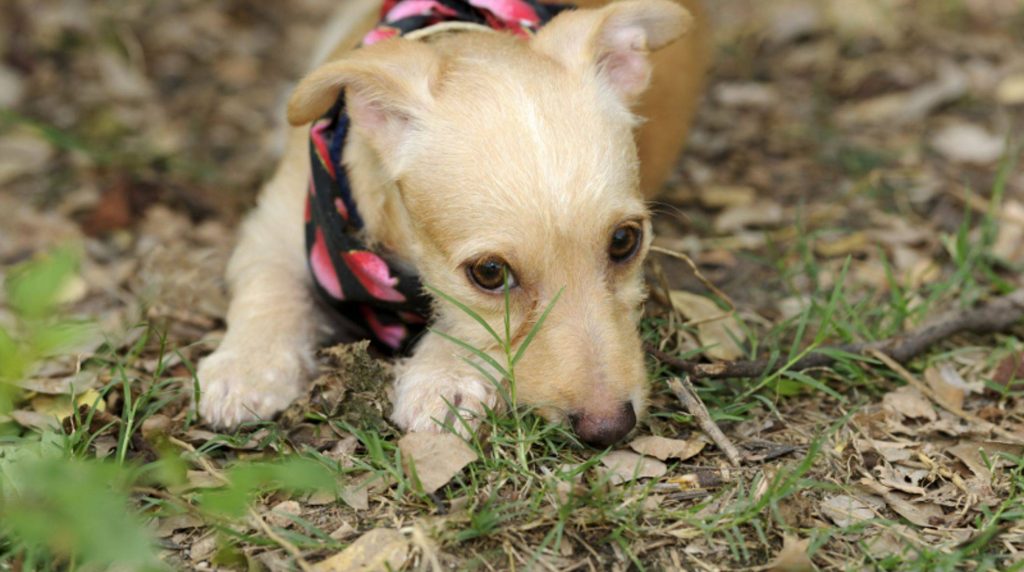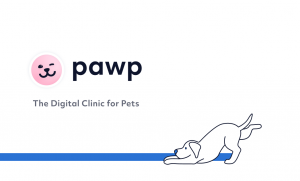The doorbell is pure stress, conspecifics cause great fear, and new paths are taken carefully? A shy dog often does not have it easy in everyday life, as many impressions trigger stress, discomfort, or fear. Often fearful dogs lack self-confidence. But as a dog owner, you can strengthen this to make everyday dog life easier.

A shy dog can be shy or insecure for a variety of reasons. For example, a puppy with minor irritation, neglect during development, or bad experiences such as violence at a young age is possible. Personality can also be the reason. Even genetics sometimes plays a role: Researchers found out, for example, that little pigmented four-legged friends are often more anxious than their peers with a lot of pigments. It is essential that a shy dog, regardless of the reason for its behavior, gains more self-confidence and gradually loses its shyness.
Shy dog: Do not confirm your four-legged friend in his fear
If you have a shy dog at home, you mustn’t confirm his behavior. For example, if a fearful dog is afraid of a visitor who is about to enter your home, you should never pet them, talk them down, or give them the feeling that their fears are justified in any way. If you were to stroke your dog extensively and mother it sympathetically in an unjustified fearful situation, Wuff thinks: master or mistress is trying to calm me down, so something is wrong. Even if it can sometimes be difficult, you should ignore your furry friend in such moments and instead give it passive security by interacting confidently and exuberantly with the visitor.
Exude security for your dog
Your dog usually recognizes that there is no danger from your behavior and adapts to your emotional situation. Animals are masters at judging situations based on the behavior of their caregivers. If you are relaxed, your four-legged friend will also relax a little in the best case. Therefore, always radiate security in stressful situations instead of reacting nervously or pityingly. You are the strong partner that your dog orients itself. If you notice signs of unjustified fear in your cold nose, you will become more confident. Speak in a calm, firm voice and move forward confidently.
Building Confidence in Dogs: Praise and Encouragement
One of the ways you gain self-confidence is by mastering certain stressful situations. This applies to humans as well as to animals. If a shy dog sees that it can get through situations in which it is unsure or afraid, it will become more and more secure, and its confidence in itself will grow. As the owner, you can support him by encouraging him to “test courage.” Start small and ask your dog, for example, to jump over a ditch or walk over a bridge that he is usually afraid of.
It is essential to praise your dog extensively when it has mastered a “critical” situation. Exuberant praise, reward, and sheer joy confirm your dog has done something well. He gains security, and his self-confidence is strengthened. Positive experiences are the be-all and end-all for a shy dog.
Scheuer Hund: Training against fear
Concrete fear can sometimes be combated through targeted dog training. The magic word is desensitization. The point is that Wuff is confronted with his fears step by step and is gradually hardened or desensitized. For example, if your dog is afraid of other dogs, you can aim for careful encounter training. If your dog is scared of thunderstorms, you could play thunderstorms from the CD to him during training sessions and gradually increase the volume. At the same time, you remain confident and confident and praise your dog enthusiastically whenever he remains calm during the CD thunderstorm. Obedience training is also proven dog training to boost self-confidence. Read more in the guide “This is what dog obedience training is all about.”
You can also approach insecurity and anxiety training with the help of a professional dog trainer or animal psychologist – this is especially advisable in severe cases. If you notice an anxiety disorder in your dog, you need to go to the vet. In the guide, you can read more about this topic: “An anxiety disorder in dogs: recognizing symptoms.”








